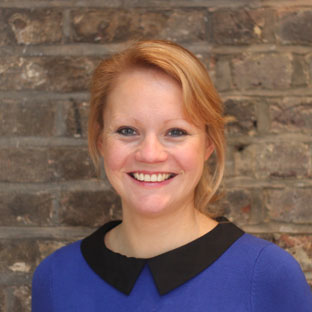This time last year, the final report of the BERA-RSA Inquiry set out the vision of a research-rich, self-improving education system, in which every learner was entitled to evidence-informed teaching and every teacher was entitled to work in a setting in which research thrives.
The goal of supporting schools (and nurseries and colleges) to become research rich is at the heart of a new project, launched on Saturday at the Research ED conference in Brighton. Research Rich Schools is a website and toolkit offering ideas and practical support for school leaders and teachers wanting to get started or take the next step with R&D. It was developed by 15 teaching school alliances from every part of the country, coordinated by the RSA Academies, who came together in February and March this year to develop a framework and set of resources:

Launching on Saturday @researchED1 gave us a chance to test the website with some of our target audience. The very fact that so many teachers and senior leaders are prepared to give up a sun-filled Saturday for the chance to sit in a University of Brighton lecture hall illustrates the growing interest within the teaching profession in R&D. But while many educators are already engaged, there is still a need to overcome practical barriers such as lack of time, as well as ‘winning hearts and minds’ to motivate less research-engaged colleagues.
Demystify R&D through practical experience
We know that taking part in research and enquiry can seem daunting and off-putting, but it can be made less scary and mysterious through direct experience, and by drawing attention to the elements that already exist in everyday practice.
This is where the website aims to be useful, offering practical suggestions as well as signposting people to useful sites and sources of information elsewhere. ‘Not reinventing the wheel’ is one of the project’s guiding principles: we know how time-wasting it can be for teachers to have to start from scratch when there are existing tools and resources out there that they don’t yet know about. Our aim is to help make these connections and save teachers and school leaders precious time so that they can get on with the task of using research to enhance teaching and learning.

Are you research ready?
Before we introduced the framework, we asked attendees where on the spectrum of research engagement they consider their school to be: ‘emerging’ (just getting started); ‘expanding’ (ready to go further); or ‘embedding’ R&D in the systems and culture of their school.
It was revealing that even in this highly research-engaged audience, roughly half of attendees class their school in the ‘emerging’ category, just under half in the ‘expanding’ category, with just a handful at the ‘embedding’ stage.
In line with the framework, each section of the website offers:
-
A tool to diagnose where schools are in relation to R&D, where they want to be and the steps needed to get there
-
Ideas and suggestions on different research roles and activities, including growing your own research leaders, working with a critical friend to set priorities, and running and evaluating research projects
-
Case studies giving examples of how schools and alliances are using research and enquiry to enhance teaching and learning
-
Top tips, advice and suggestions for taking the next step towards becoming a research rich school
Decide strategic priorities for R&D
At each stage, we suggest it is worth thinking about how to be strategic, realistic and creative:
-
Strategic: be clear about the difference you want to make. Decide what will be most useful for your school and alliance through a structured conversation with senior leaders, with input from other staff, pupils, parents and governors as appropriate. Consult the school improvement plan to identify key areas of focus where research and enquiry can be used to enhance teaching and learning.
-
Realistic: agree with senior leaders how much time and resources can actually be committed to R&D and decide what size and scale of project is manageable in the chosen timescale - don't try to achieve too much or you will end up frustrating both yourself and others.
-
Creative: give colleagues the chance to innovate and test new ideas - and give them space and confidence to try things that may not work without fear of failure.
Taking time to develop
The journey towards evidence-informed teaching and learning takes time, patience and perseverance. ResearchRichSchools aims to support schools wherever they currently are on this journey to take their next steps towards research engagement. Importantly, it allows for ebb and flow, recognising that there is no single model of best practice and that teachers and schools will not necessarily evolve at the same pace or in the same way.
In the same spirit, it is worth stressing that the website, framework and toolkit are a work in progress. We would love to hear from you about what works well and what can be improved, so do get in touch to share your comments and suggestions. We look forward to hearing from you!

Louise Bamfield is Associate Director of Education at the RSA. Get in touch via louise.bamfield@rsa.org.uk or @bamfieldlou. Share your thoughts on twitter hashtag #ResearchRichSchools

Join the discussion
Comments
Please login to post a comment or reply
Don't have an account? Click here to register.
Thank you for this post. The Research Rich Schools website provides an excellent framework for school-based teacher research, and the resources/tools are accessible and readily applicable. I would like to promote this work with our regional K-20 network in Rochester NY, USA, the Community Center for Teaching Excellence (CCTE). CCTE has supported teacher action research and the scholarship of teaching with its cross-sector Faculty Fellows Program. Currently we are writing up a research project on teachers' views of an effective K-8 summer learning program. I look forward to learning more about the RSA and your work!